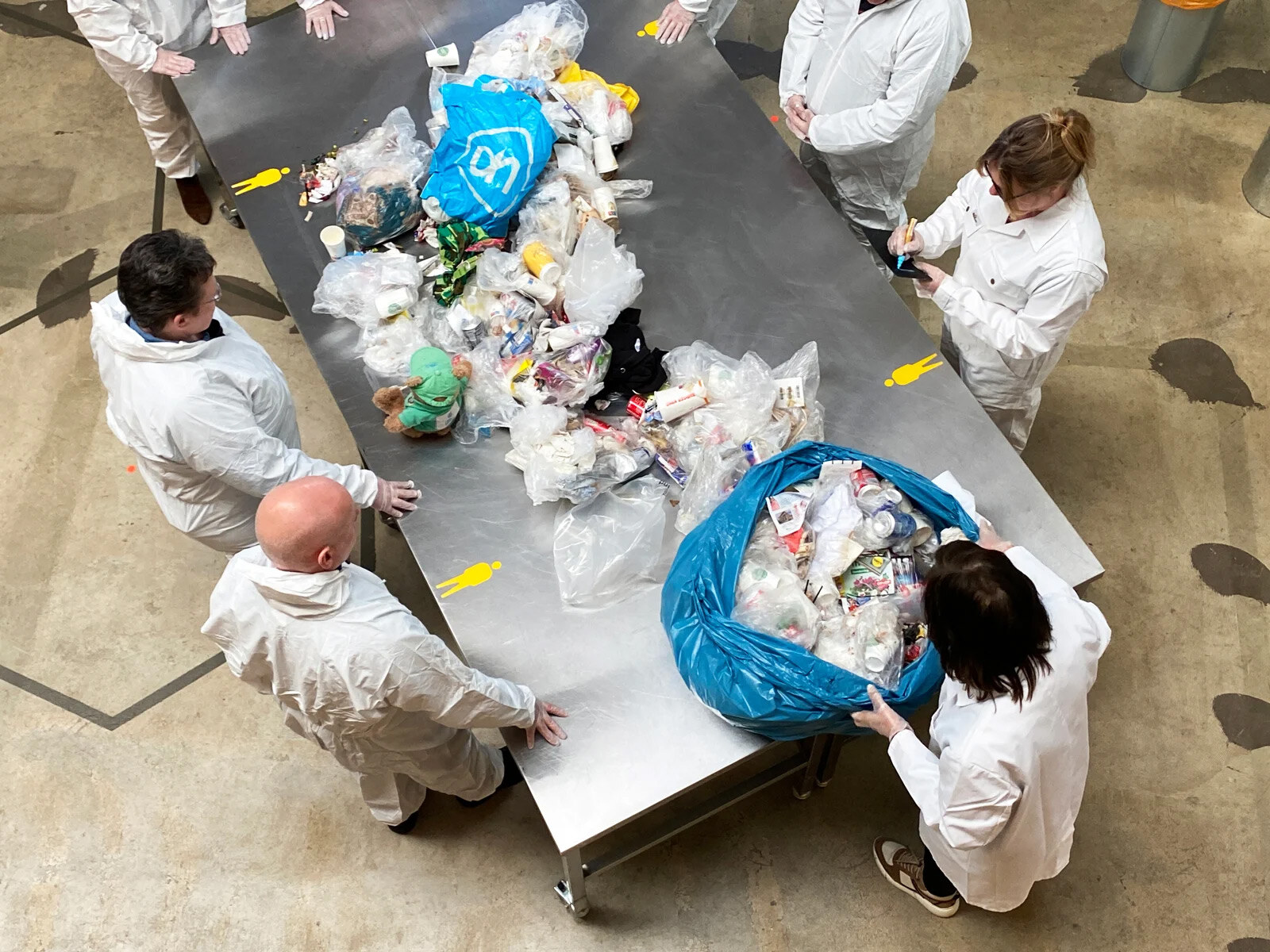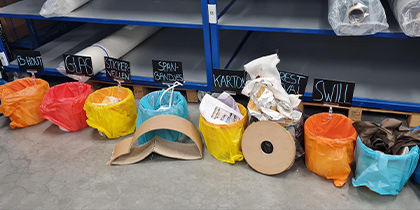In August 2024, Bru Textiles, a leading player in the textile sector, launched a partnership with Milgro. The goal: to no longer see waste as a residual product, but as a raw material. Part of this collaboration was the WasteLab, an interactive workshop to analyze waste streams, find points of improvement for waste separation and make employees aware of how choices and behavior directly contribute to a circular economy.
The WasteLab: insights and action
During the WasteLab, we took a close look at Bru Textiles' waste streams. Together with the employees, wearing gloves, we literally dived into the waste bins. Although waste was already well separated, it turned out that many materials such as foil, plastic, straps and cardboard still ended up in the residual waste. This was because there were no specific collection facilities available for these streams. By placing this at strategic collection points, these streams can be separated more efficiently, preventing waste from ending up in residual waste unnecessarily.
In addition to these materials, we encountered a challenge: blue cleaning cloths. These cloths, often made from a combination of cellulose and plastic fibers cannot be thrown in with the paper and cardboard due to their material composition. In addition, they often become soiled with oil, grease or other substances during use, further complicating recycling.
In addition, Bru Textiles is struggling with large quantities of textile remnants that until recently were difficult to dispose of. This is because many of these remnants consist of mixes of fibers, such as polyester and cotton, which makes recycling difficult.
''At Bru Textiles, we deal with large amounts of residual textile waste. Because of Milgro's approach and insights, we now understand much better what is possible and how we can improve this step by step,'' said Bru Textiles.
Milgro gave targeted recommendations during the WasteLab to address these bottlenecks. Together with the employees, practical solutions were discussed, such as setting up separate collection points for foil, straps and cardboard to separate these materials more efficiently.

The cooperation with Milgro is still in its early stages and the first results are promising. Employees of Bru Textiles now separate waste streams more efficiently, and residual waste is significantly better reduced.

''The workshop was well prepared and gave us clear insights into our waste streams. The background information and results were clearly applicable. Our employees now better understand why these steps are important and see how they contribute to concrete improvements. Now it is up to us to further use and develop these insights,'' said Bru Textiles.

Ready to get started?
Want to discover how your organization can separate waste streams more efficiently and actively engage employees in more sustainable waste management?
With a WasteLab, we work together with your team to analyze the current state of your waste streams and immediately provide practical solutions to implement sustainable improvements.
Want to know more?
 Would you like to know more about our approach or discuss the possibilities for your organization? Make an appointment now with Pascale Hendrickx, Project Manager Milgro Belgium.
Would you like to know more about our approach or discuss the possibilities for your organization? Make an appointment now with Pascale Hendrickx, Project Manager Milgro Belgium.
Stay informed
Stay informed about all new developments? Follow us on LinkedIn andInstagram or subscribe to thenewsletter. Are you curious about what Milgro can do for your operations and waste process? Then getin touch .











